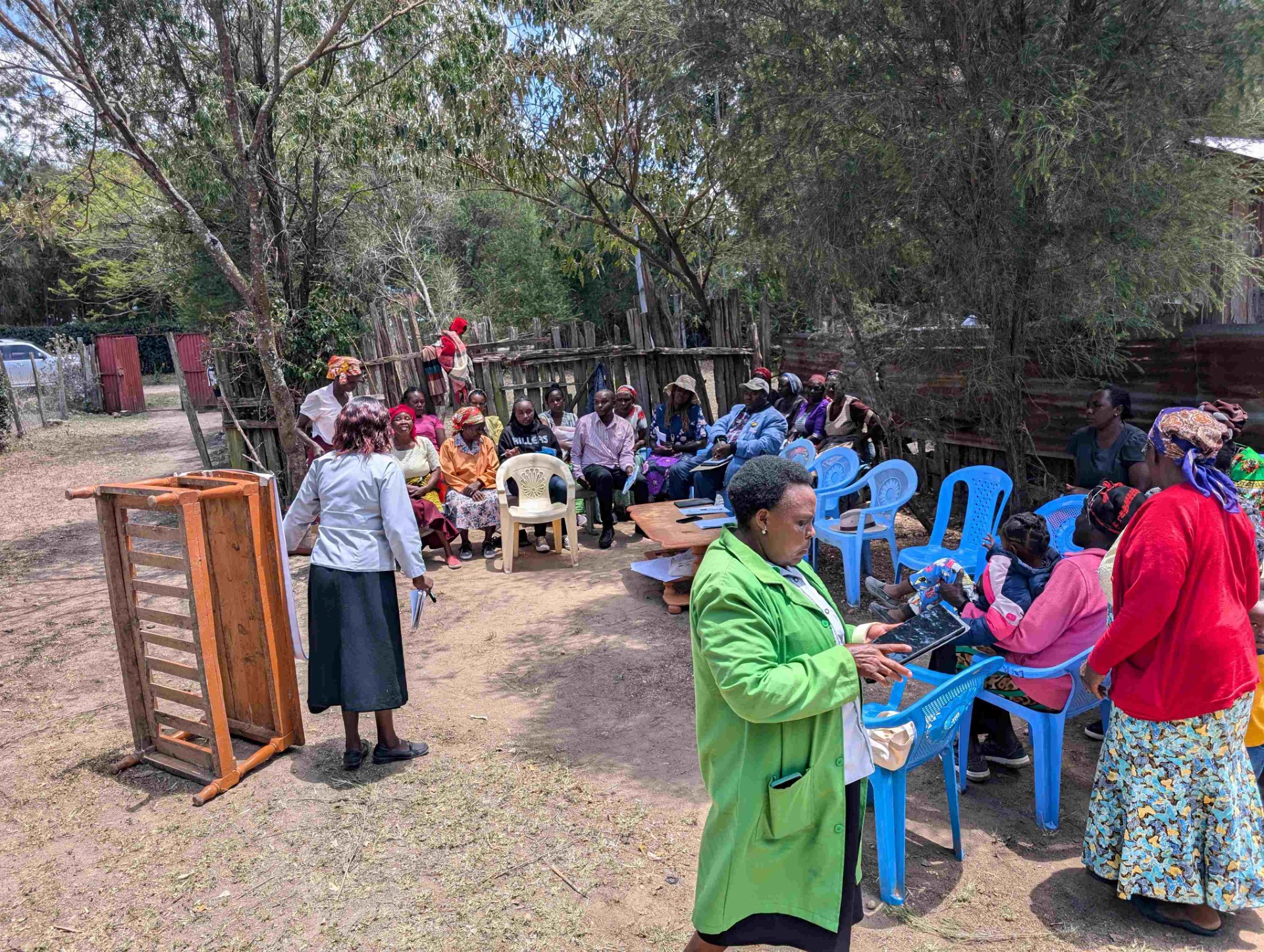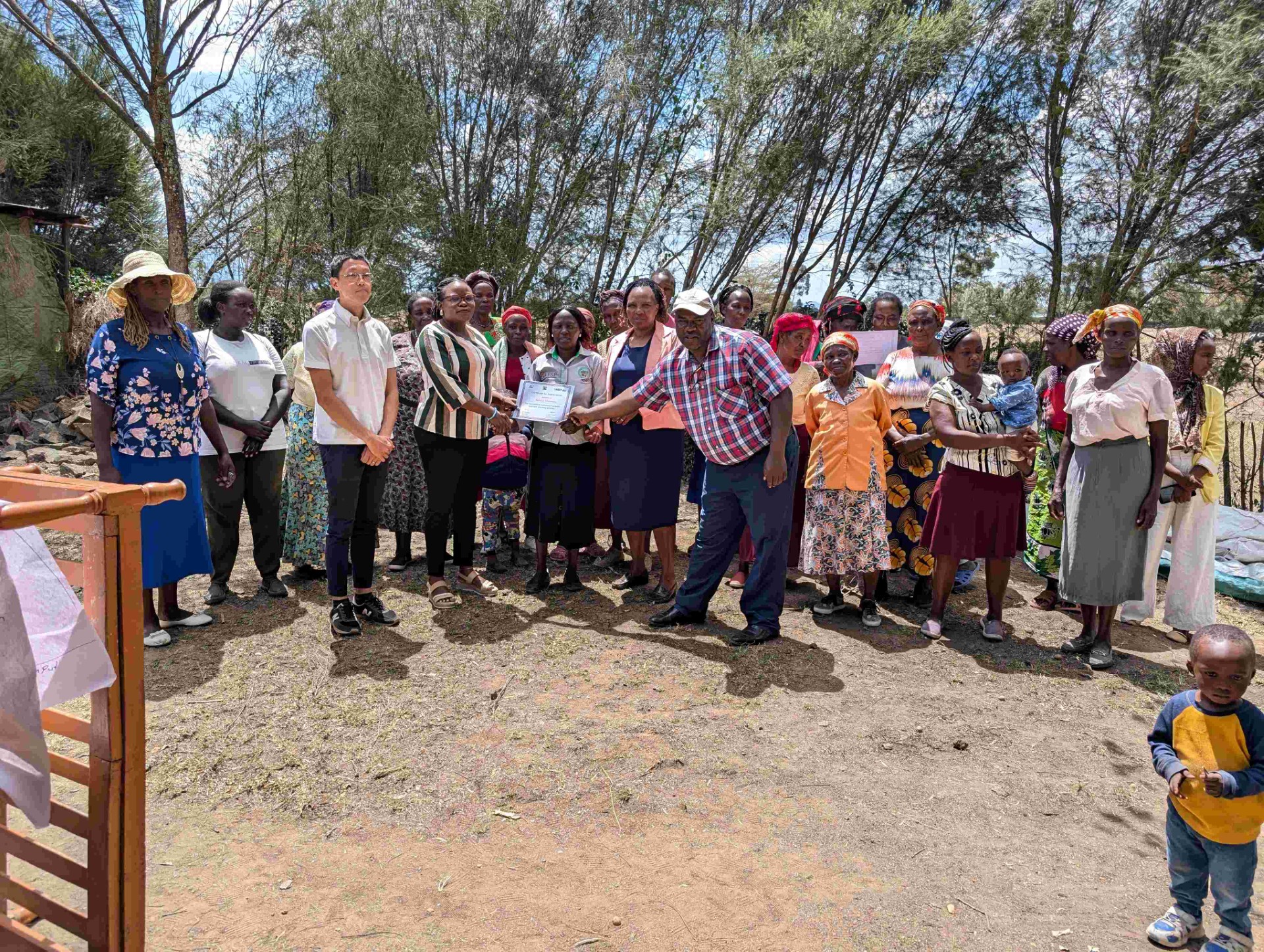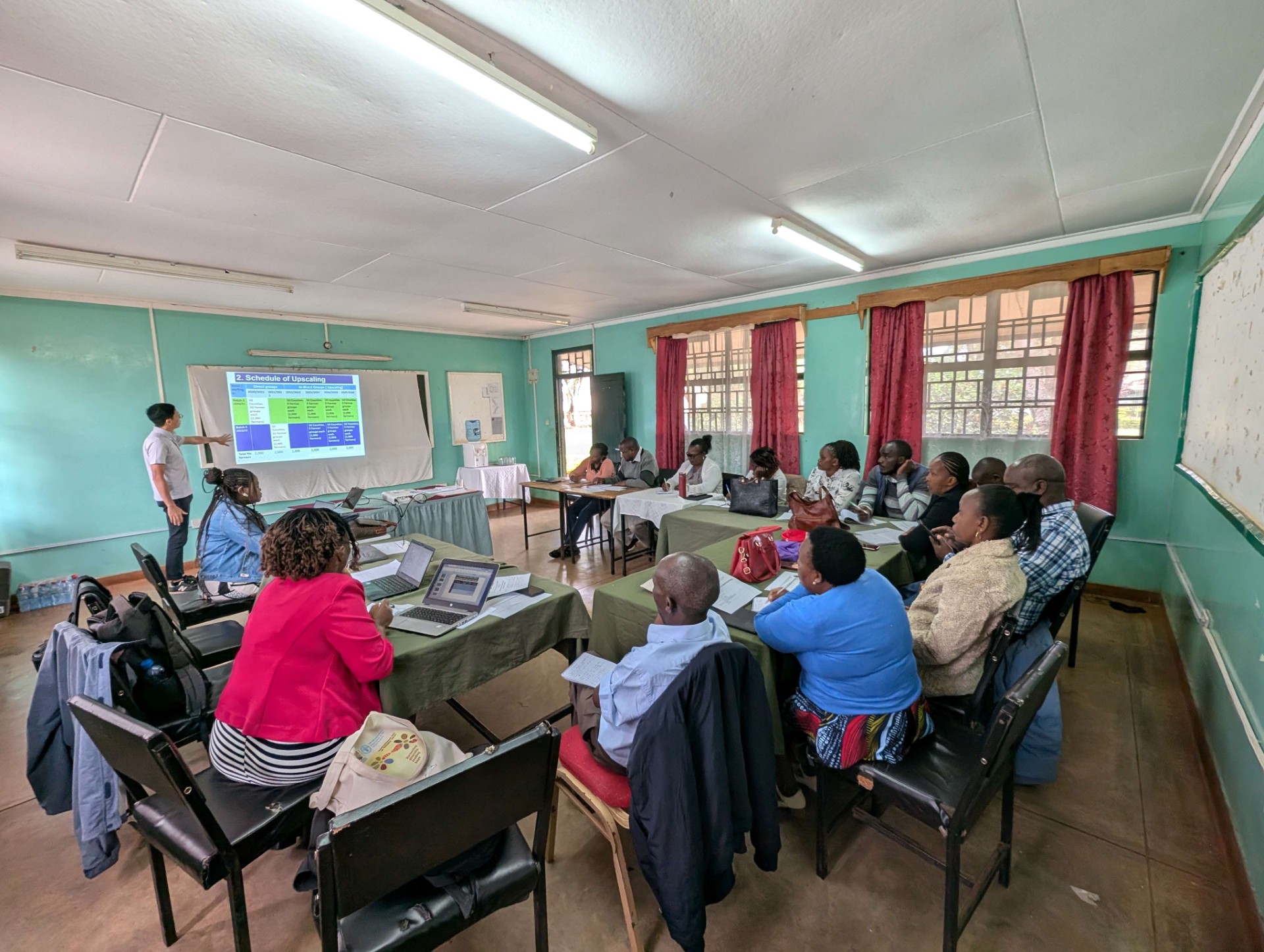Project News Volume 38
What is Upscaling?
~Method for sustainable extension in SHEP approach~
This is Kobayashi from JICA HQ. I joined SHEP Biz through on the job training. In this article, I will deliver the situation of the monitoring about upscaling conducted for farmer groups in Kieni East Sub-County of Nyeri County from October 14th to 15th 2024 from the perspective of OJT.
What is upscaling?
The extension officers who have undergone SHEP Biz project training use the county's budget to continuously guide farmers through the 4 steps of the SHEP approach.
In the hearing with the farmer groups that have received training through upscaling, I could feel that farmers’ mindset changes from 'Grow and Sell' to 'Grow to Sell' was made through market survey. Also, farmers mentioned that learning about spacing of crop, how to use pesticides, and how to keep record of income and expenditure of agriculture led to an increase in income.
Based on the content of the monitoring, I think there are two advantages in upscaling.
- 1 . A sustainable model where the SHEP approach is used and extended by the county themselves.
- 2 . It makes possible to realize a more effective approach that is localized.
The first point is that the dissemination of the SHEP approach can be considered as a sustainable model since it is based on the budget of the county or sub-county. In Kieni East sub-county where we visited, whether the SHEP approach training was conducted seems to be included in the job evaluation criteria for agricultural extension officers. In other words, whether they conduct the upscaling of the SHEP approach is to lead their evaluation result. I think it is desirable for the dissemination of the SHEP approach to be systematized within the county.
Regarding the second point, the farmer groups can conduct market survey with consideration of climatic, social, and cultural factors through training by extension officers who understand the characteristics of the region.
On the other hand, there are some issues to be addressed. First, resources are not sufficient. Due to insufficient budget and shortage of personnel, there are cases that county is unable to establish a system to promote the SHEP approach. In addition, there are cases where county cannot capacitate new extension officers who are transferred or newly hired on SHEP approach, because the additional training for officers is agreed to be done on cost sharing between the county and SHEP Biz. Also, it is observed where the monitoring system on their provided tablets (created with Kobo ToolBox) is not used effectively by extension officers, and the reporting, communication, and consultation process is not going well. It is necessary to solve those issues one by one and steadily by SHEP Biz.
County and sub-county officers said “I find my work rewarded because feeling and experiencing the growth of the farmers motivate me.”
From these discussions, I felt that the SHEP is a project that not only transfers technology, but also considers how beneficiaries can act autonomously and with intrinsic motivation, considering local culture, resources, and social characteristics. It is precisely because of this, that significant results are being achieved.
I believe this approach is adaptable not only to SHEP but also to other JICA schemes from the perspective of human resource development. It was a valuable experience to be able to accompany the field where we can hear the voices from the farmers!
References
https://www.jica.go.jp/english/activities/issues/agricul/shep/index.html

Monitoring and lecture scene at Mwihoko Randi Women Group.

The scene of certificate presentation at Mwihoko Randi Women Group.

The scene of discussion regarding upscaling among county officer.
